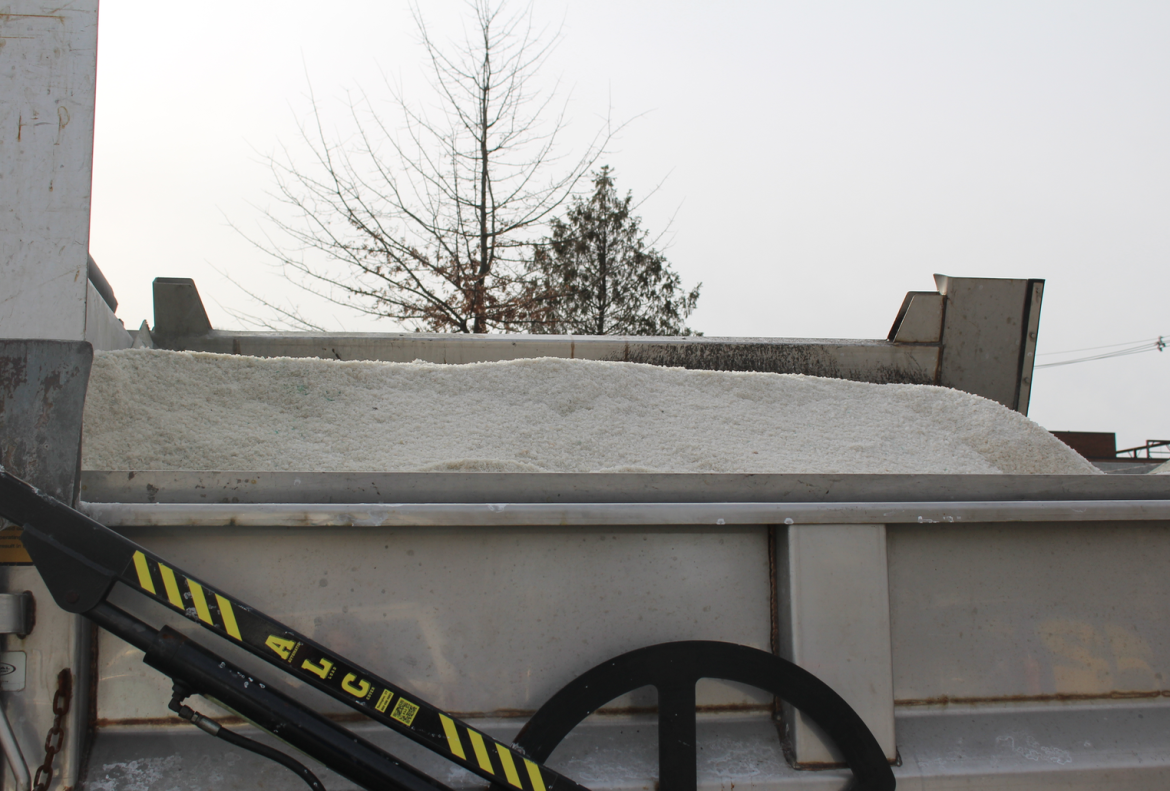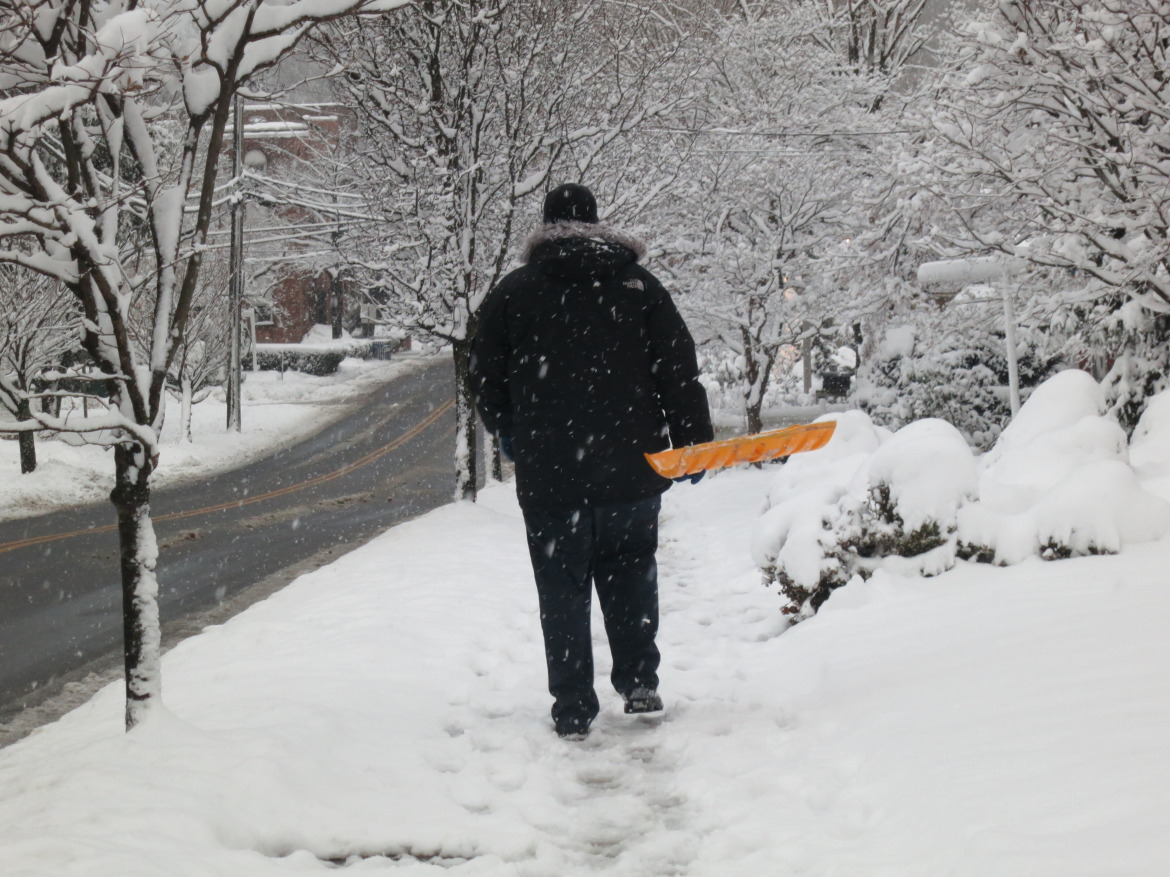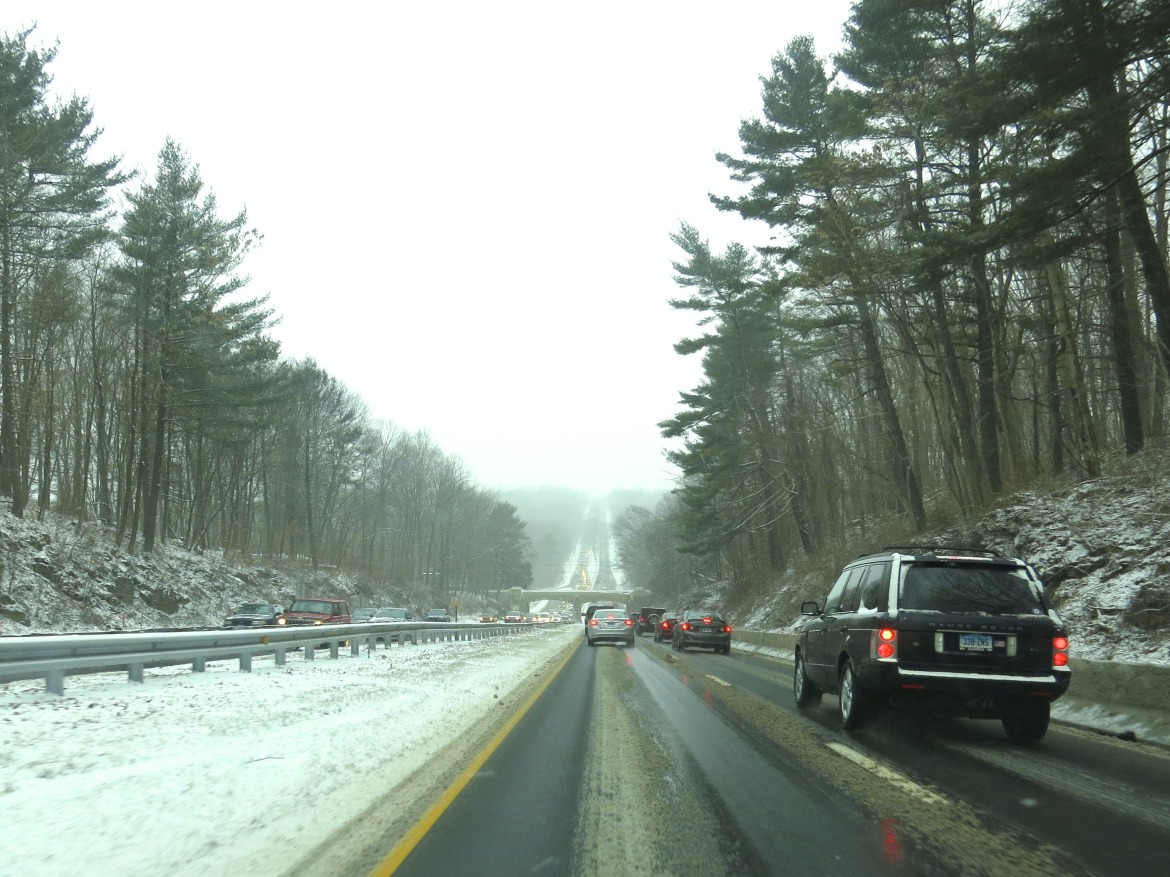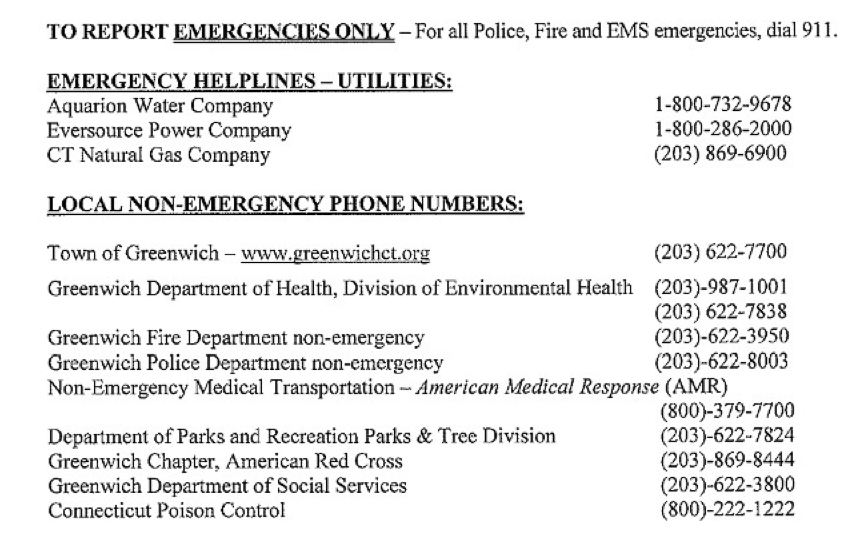A northeaster is forecasted to impact Greenwich beginning Saturday, January 23, continuing through Sunday, January 24.
The storm is expected to bring snow, possible high winds, and the potential for coastal flooding. As of Friday morning January 22, the National Weather Service has placed our region under a Winter Storm Watch and is predicting 4 or more inches of snow across southern Connecticut. Wind speeds of 15 to 20 miles per hour with higher gusts are possible, highest at the coast. There is potential for widespread minor to locally moderate tidal flooding around times of high tide Saturday morning.
A Coastal Flood Advisory has been posted for January 23 at 10 a.m. to 2 p.m., with a Coastal Flood Watch in effect for January 23 from 9 p.m. to I a.m.
Given the forecast uncertainty, we encourage you to monitor weather through media outlets and visit our Town of Greenwich website at www.greenwichct.org for further updates. We also recommend residents monitor regional and local weather agencies for updates regarding coastal flood watch status. Residents in low lying coastal areas should take action to protect their property.
The Town of Greenwich is requesting that motorists remain off the local roads for at least eight hours after the snow fall ends in order to allow crews to safely clear the roads. We encourage residents who have cars parked on designated snow emergency routes to proactively relocate their cars in the event a snow emergency is declared. Off-street municipally owned parking lots can be used for parking vehicles displaced from Snow Emergency routes.
We encourage everyone to enjoy a weekend at home, and to drive very carefully and be wary of road conditions if venturing out. Use caution when shoveling heavy snow to avoid injury.
Residents needing assistance may contact the Town of Greenwich non-emergency phone number at Public Safety Dispatch (203) 622-8003 If it is an EMERGENCY, CALL 911.
Natural disasters like snow storms can occur at any time during the winter months, so the Town of Greenwich is reminding all residents to be prepared. With today’s changing weather patterns, it is important to be prepared for emergencies of all kinds. While government does its part in preparing for disasters, personal action and responsibility is needed. Part of being prepared is deciding on whether you should ride out a storm event or relocate for safety. This decision should be based upon your personal needs and available resources.
The Town has several sheltering facilities and warming centers that can be used; however, they will not be activated unless it is necessary. All residents should stay tuned to weather conditions and follow guidelines set by Town officials.

Pile of salt in a town truck, Jn. 22, 2016 Credit: Leslie Yager
The Town of Greenwich advises residents to make an Emergency Supply Kit and to keep emergency contact phone numbers listed at the end of this release.
During an emergency the Town may opt to use the Reverse 911 system to send a recorded message to each resident that has a published number. All residents are encouraged to register a contact number (non-published number, cell phone, etc.) by logging on to the Town’s website located under the First Selectman’s Emergency Preparedness page.
1) Know the terms used by weather forecasters:
• Freezing rain – Rain that freezes when it hits the ground, creating a coating of ice on roads, walkways, trees and power lines.
• Sleet – Rain that turns to ice pellets before reaching the ground. Sleet causes roads to freeze and become slippery.
• Winter Storm Warning – A winter storm is occurring, or will soon occur in your area.
• Blizzard Warning – Sustained winds or frequent gusts to 35 miles-per hour or greater. Conditions include falling or blowing snow (reducing visibility to less than a quarter mile) and are expected to prevail for a period of three hours or longer.
• Frost/Freeze Warning – Below freezing temperatures (32 0 F) are expected.
2) What to do in the cold and during a winter storm
• Always follow directions given by Town officials during a storm emergency.
• Follow your online sources like GFP, listen to your radio, television and NOAA Weather Radio for weather reports and emergency information.
• Keep occupied with activity, eating nutritiously and drink ample fluids, but avoid excessive caffeine and alcohol.
• Dress appropriately. Wear several layers of warm, loose fitting and lightweight clothing rather than one layer of heavy clothing. Mittens are warmer than gloves. Always wear a hat, as most body heat is lost through the top of the head and cover your mouth with a scarf to protect your lungs. Always be aware of possible dangers using electric appliances such as heating blankets and room heaters.

• Shovel snow during a storm only when necessary. Over-exertion can be dangerous to your health, especially your heart.
• Watch for signs of Frostbite: loss of feeling and abnormal coloring in extremities (fingers, toes, ear lobes or the tip of the nose). If symptoms are detected, call 911 immediately
• Watch for signs of Hypothermia: bluishness or puffiness of the skin, dilated pupils, decreased respiratory rate, irregular pulse, uncontrollable shivering, memory loss, disorientation, incoherence, slurred speech, drowsiness and apparent exhaustion. If symptoms occur, get the person to a warm location, remove any wet clothing and give warm, non-alcoholic beverages if the person is conscious. Call 911 for medical help immediately.
• When using portable generators, never use indoors (even if garage doors are open) or in enclosed spaces. Exhausts from these units contain carbon monoxide (CO). Also, do not supply generator power to your home’s main line.

• Avoid traveling on the roads, recognizing the hazards of snow drifts and ice under the snow. Prepare to survive independently (shelter in place) for several days.
• Gather disaster supplies. Be sure to include winter specific items such as rock salt and sand to melt ice on walkways, snow shovels, candles, flashlights, battery operated radios, First Aid Items: bandages, blankets, First Aid handbook and all special medicines; a supply of non-perishable goods that require no cooking or refrigeration and a can opener; a minimum of one-gallon of water per person a day.
• Do not use gas stoves or charcoal grills for heat. They can lead to carbon monoxide poisoning.
• Use alternative equipment for heat (wood burning stove or fireplace — well vented). Keep at least one room at a livable temperature. (Be sure the room is well ventilated.) Kerosene heaters can be dangerous. Never use any fuel other than kerosene in a kerosene heater and follow the manufacturer’s guidelines if they are to be used.
• Keep fire extinguishers on hand and know how to use them.
STORM CONDITIONS
Power Outages
Storm conditions can bring high winds, snow drifts, icing, possible flooding and power outages. When storm warnings are in effect, stay tuned to local radio stations and television for official bulletins. Keep a battery-powered radio handy, stay indoors, avoid traveling on the roads. Motor vehicles should be kept off the street so emergency response crews can access the area to clear trees and snow, service wires and respond to medical emergencies.
Power outages can pose health hazards. Community shelters (Eastern Middle School and Western Bendheim Civic Center) or warming centers (Police Department Complex and Round Hill Community Center) will be opened if available and needed. (Hours of operation will be made available.)
During power outages:
Unplug your appliances.
Generators should be used with caution. Always follow the manufacturer’s instructions and NEVER operate a generator indoors. Also, do not operate a generator inside the garage with or without the door being opened. DO NOT SUPPLY generator power to your home’s main line as you may injure a utility employee. Be aware of pooled water at all times.
Conserve fuel and water. A few large containers can be filled with warm water for an emergency supply.
Observe health and safety precautions when issued especially during times of fallen trees and power lines.
Do not use charcoal grills indoors (includes garage) or gas stoves as a source of heat. Either one can lead to carbon monoxide poisoning.
When using candles, do so with extreme caution.
Fireplaces may be used as long as they are properly vented.
Keep your refrigerator and freezer doors closed. When anticipating a power failure, set refrigerator and freezer temperatures to a colder setting to build up a cooling reserve. With the door closed, fully stacked freezers will keep for two days, while half full freezers will keep food for one day. Dry ice can be used safely in freezers; however, gloves must be worn in handling and proceed as recommended.
All thawed food may be cooked if maintained below 45 0, otherwise it should be discarded. It is not recommended to refreeze any food once it has thawed. Any questions about food spoilage can be directed to the Division of Environmental Services at (203) 987-1001 or (203) 622-7838.
Refrigerated food, especially perishable items such as eggs, milk, fish, meat and poultry, should be maintained at 45 0, or below. Foods should be cooked or discarded after three hours of not being maintained at proper temperatures. All stuffed meats and poultry should be discarded. Any doubt concerning food items, discard or contact the Division of Environmental Health at the number(s) above, to discuss certain situations.
Fallen Trees
• Fallen trees can cause a major problem. Trees on private property will be the responsibility of the homeowner. When a Town tree falls onto private property the Town will be responsible for the removal of all wood and brush. All calls will be handled on a first come basis unless it is an emergency situation. Patience is requested since all roads and critical municipality infrastructures must be cleaned and cleared first for safety.
• When any tree falls on a power line and causes it to come down or block a Town road or right-of way, the situation should be reported
